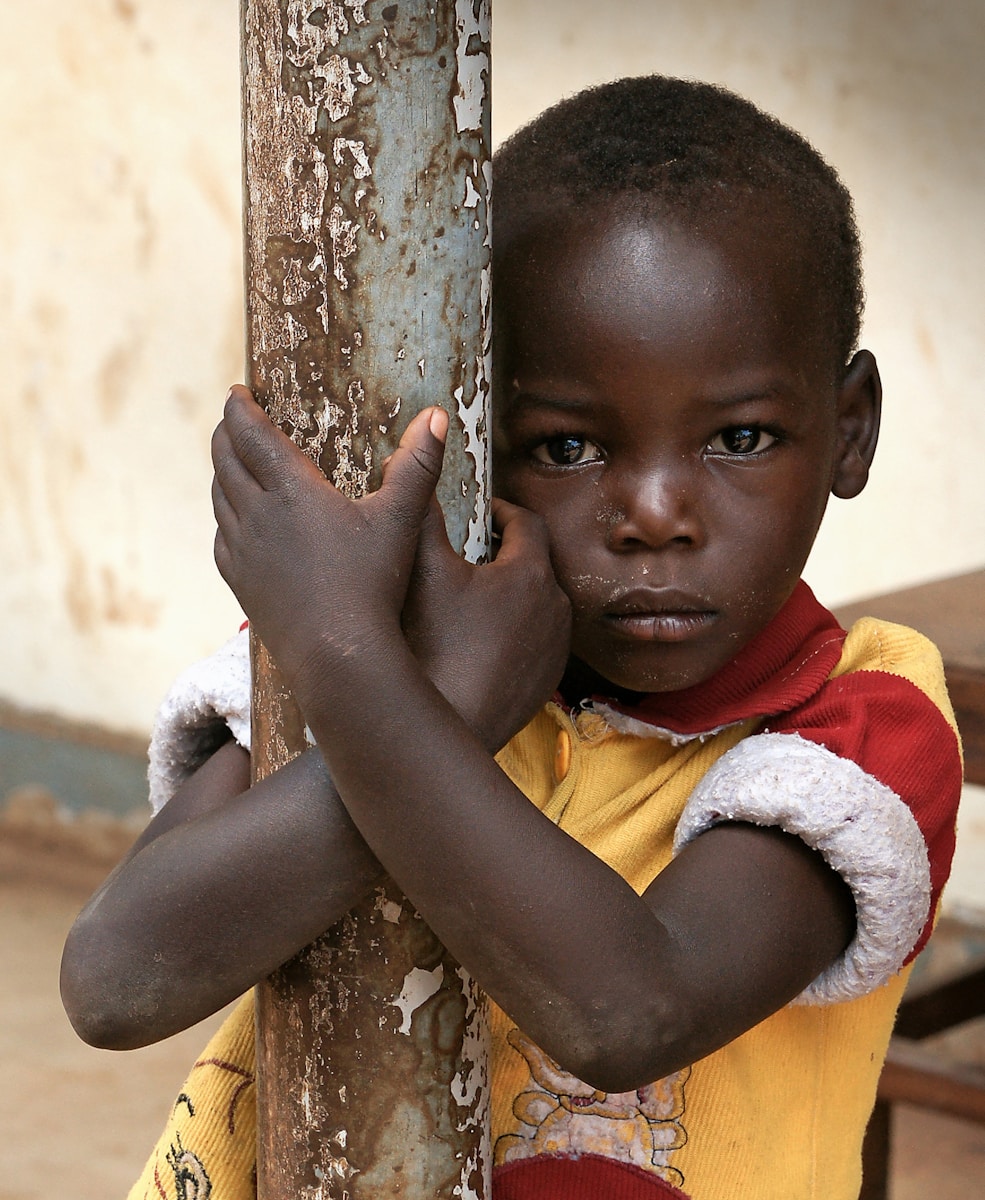Burkina Child Rights: UN Expulsion Sparks Global Debate
The decision by the Burkina Faso junta to expel a UN official has triggered a major international debate surrounding child rights and accountability. Following the publication of a report highlighting alleged mistreatment of children, the junta’s action drew immediate criticism from human rights organizations, media outlets, and international partners.
Burkina Child Rights are now under intense global scrutiny, as governments and NGOs demand clear answers about the safety, protection, and welfare of children within the country. The expulsion raises urgent questions about governance, transparency, and the country’s commitment to international agreements. Observers note that failure to address such concerns can significantly undermine Burkina Faso’s credibility on the international stage, affect diplomatic relations, and reduce access to foreign aid and development programs.
Domestic reaction has also been significant, with civil society organizations voicing concern over the lack of transparency and oversight. Burkina Child Rights advocates emphasize that protection mechanisms must be strengthened, and that removing an external monitor hinders the implementation of reforms designed to safeguard children.
The media coverage has amplified public awareness, prompting discussions on children’s rights, ethical governance, and the role of international bodies in promoting accountability. Furthermore, the situation demonstrates the delicate balance between national sovereignty and global responsibility, as the country navigates internal political interests while being observed by international stakeholders. Analysts suggest that how Burkina Faso responds in the coming months will set a precedent for future handling of child protection issues and international cooperation.
International bodies, including the UN, have reiterated the importance of accountability, transparency, and adherence to child protection standards. Burkina Child Rights are now central to diplomatic communications, with calls for independent investigations, reporting mechanisms, and monitoring of conditions on the ground.
The expulsion incident has highlighted potential weaknesses in domestic institutions, underscoring the need for improved legal frameworks, reporting protocols, and enforcement practices. It also prompts a re-evaluation of regional cooperation mechanisms to ensure cross-border accountability and to provide support where national systems may be insufficient. Humanitarian organizations continue to advocate for protective measures, emphasizing that children’s welfare must remain a priority despite political controversies. By addressing these concerns with urgency and transparency, Burkina Faso can begin to restore trust and demonstrate a genuine commitment to the protection of its most vulnerable citizens.
Burkina Child Rights: Domestic and Regional Policy Implications
The expulsion has profound implications for domestic policy, governance, and regional stability. By removing a UN official tasked with oversight, the junta signals a degree of resistance to external accountability, which may hinder efforts to implement child protection reforms. Burkina Child Rights advocates argue that safeguarding children requires not only adherence to international agreements but also robust enforcement of domestic laws.
The lack of cooperation with international bodies could delay policy improvements and reduce effectiveness of protection programs designed to prevent abuse and exploitation. Public discourse, media attention, and civil society advocacy play critical roles in pressuring authorities to act responsibly and maintain compliance with international standards.
Regionally, neighboring countries and West African organizations are closely monitoring developments. Failures in governance or rights protection in Burkina Faso may have spillover effects, including cross-border movements of vulnerable populations, regional advocacy campaigns, and potential sanctions or diplomatic interventions. Burkina Child Rights are now a matter of international and regional concern, emphasizing the interconnected nature of human rights protections. Governments, NGOs, and international agencies collaborate to ensure that lessons learned from this incident inform policy development, strengthen regional child protection frameworks, and promote preventive measures across borders.
In response, domestic authorities are encouraged to review and enhance legal and administrative mechanisms for child protection. Comprehensive strategies may include improved monitoring, stronger reporting requirements, transparent investigations, and public engagement campaigns. By addressing both domestic and regional implications, Burkina Faso can demonstrate a commitment to ethical governance and the long-term protection of children. Ensuring accountability, transparency, and collaboration between national and international actors is critical to restore credibility and reinforce the country’s commitment to human rights obligations.
Burkina Child Rights: International Reactions and Accountability Measures
The international response to the expulsion has been swift and decisive. UN agencies, foreign governments, and global human rights organizations have voiced strong concern over the action, emphasizing that Burkina Child Rights must be upheld. Calls for independent investigations, increased oversight, and corrective measures have intensified as stakeholders seek to ensure that children are not subjected to harm and that responsible parties are held accountable. The incident has sparked debate on the limits of national sovereignty, the enforcement of international norms, and the mechanisms through which global conventions on child protection can be implemented locally.
Humanitarian organizations stress the urgent need for protective measures for children, including safe reporting channels, monitoring of care facilities, and the provision of support services. International bodies coordinate with regional organizations to track developments, provide guidance, and apply diplomatic pressure where necessary. The expulsion incident also serves as a case study in the importance of transparent governance, documentation, and proactive engagement with international stakeholders. Burkina Child Rights advocates argue that robust legal frameworks, compliance monitoring, and continuous oversight are essential to prevent recurrence of abuses and maintain public confidence.
By responding effectively, Burkina Faso has the opportunity to demonstrate accountability, reinforce international trust, and strengthen child protection systems. Continued dialogue between domestic authorities, regional partners, and international agencies can facilitate the implementation of effective reforms. Ensuring that children’s rights are prioritized, monitored, and protected will help rebuild credibility and support sustainable development within the country, highlighting the critical role of ethical governance and responsible oversight in maintaining social stability and human rights protections.
Burkina Child Rights: Implications for Humanitarian Programs
The expulsion of the UN official has significant implications for humanitarian programs operating in Burkina Faso. International NGOs and aid organizations rely heavily on transparent reporting and collaboration with both government agencies and oversight bodies to deliver essential services to children and vulnerable populations. With the recent expulsion, communication channels may be disrupted, and oversight of child protection initiatives could face challenges. Burkina Child Rights advocates stress that maintaining access to accurate data, monitoring outcomes, and ensuring accountability are critical for the continued success of these programs. The absence of an external observer could hinder the evaluation of program effectiveness and the identification of areas in need of intervention, potentially leaving children exposed to risks that might otherwise be mitigated.
Moreover, the situation may impact funding and international support. Donor agencies prioritize transparency and accountability in the allocation of resources, and any perceived obstruction or non-cooperation with monitoring bodies can influence decisions on aid distribution. Burkina Child Rights organizations argue that it is imperative for the government to demonstrate a commitment to ethical governance and compliance with international standards to maintain trust and secure continued support. Failure to do so could result in delays or reductions in aid, which would directly affect the delivery of critical services such as education, healthcare, and child welfare programs.
In response, stakeholders emphasize the need for a multi-layered approach that ensures children remain protected while maintaining dialogue with national authorities. Humanitarian actors are encouraged to adapt strategies, strengthen internal monitoring, and establish alternative reporting mechanisms to mitigate the impact of the expulsion. By prioritizing the welfare of children and reinforcing Burkina Child Rights through robust programmatic oversight, the international community can continue to provide essential services and advocate for systemic improvements. The collaborative effort between NGOs, local actors, and regional partners is crucial to safeguard children while promoting governance reforms that enhance transparency and accountability within Burkina Faso.
Burkina Child Rights: Political Repercussions and Public Perception
The political repercussions of the UN official’s expulsion are far-reaching. Within Burkina Faso, public perception of the junta’s governance and commitment to human rights has been significantly influenced by this incident. Citizens, civil society organizations, and the media have raised concerns about transparency, the rule of law, and protection of vulnerable populations. Burkina Child Rights now occupy a central role in public discourse, prompting debates on governmental accountability and ethical governance practices. Analysts suggest that the junta’s actions may shape voter attitudes, civil engagement, and domestic policy priorities, as the population reacts to perceived shortcomings in leadership and oversight.
Regionally, the incident has attracted attention from neighboring countries and regional bodies responsible for promoting human rights and stability. The expulsion may affect diplomatic relations, regional cooperation on child protection initiatives, and collaborative monitoring efforts. Burkina Child Rights advocates stress that continued engagement, public transparency, and adherence to legal obligations are necessary to mitigate reputational risks and maintain constructive dialogue with regional partners. Failure to address the concerns raised by the expulsion could have long-term consequences for Burkina Faso’s domestic legitimacy and international credibility.
Overall, the political ramifications extend beyond immediate governance concerns, influencing the country’s image on the global stage. Public trust, citizen engagement, and diplomatic relations are all intertwined with how the junta responds to calls for accountability. By adopting policies that prioritize transparency, reinforce legal frameworks, and respect Burkina Child Rights, the government can gradually restore confidence among citizens and international stakeholders, ultimately contributing to political stability and enhanced governance practices.
Burkina Child Rights: Legal and Ethical Considerations
Legal and ethical considerations play a central role in evaluating the junta’s actions. Burkina Child Rights advocates emphasize that international conventions, national legislation, and ethical principles must guide decisions affecting children. The expulsion raises questions about compliance with international agreements, including the Convention on the Rights of the Child, and whether national authorities are fulfilling their obligations to ensure the safety and well-being of minors. Legal frameworks should provide clear procedures for oversight, reporting, and accountability, ensuring that incidents of abuse or neglect are investigated thoroughly and remedied appropriately.
Ethically, the junta’s decision has been criticized for potentially prioritizing political control over the protection of vulnerable populations. Burkina Child Rights require that all actions taken by authorities align with fundamental principles of human dignity, safety, and welfare. Stakeholders argue that ethical governance involves transparency, cooperation with monitoring bodies, and proactive measures to prevent harm. Failure to uphold these standards may lead to long-term negative consequences for children, families, and the broader society.
To address these concerns, international organizations, legal experts, and civil society groups recommend the establishment of independent oversight mechanisms, enhanced reporting structures, and ongoing engagement with regional and global bodies. By reinforcing legal and ethical standards, Burkina Faso can demonstrate its commitment to protecting children, upholding international norms, and restoring trust among domestic and international communities. Prioritizing both legal compliance and ethical responsibility is essential to ensuring that Burkina Child Rights are respected and safeguarded across all sectors of society.
Broader Societal Implications of the Expulsion
The expulsion of the UN official has wide-ranging societal implications that extend beyond immediate governance concerns. Citizens, civil society organizations, and local media have intensified discussions on accountability, transparency, and the protection of vulnerable populations. Public awareness campaigns and community dialogues have become crucial in highlighting the importance of child protection, ethical governance, and adherence to legal obligations.
The incident has sparked conversations on the role of international oversight in safeguarding rights and ensuring justice, emphasizing the interconnectedness of domestic policy and global human rights standards. Social trust and confidence in government institutions are directly affected by such events, influencing citizen engagement, participation in civic life, and the perception of national leadership. By fostering open dialogue, promoting education on rights, and ensuring mechanisms for reporting and monitoring abuses, the government and civil society can work together to strengthen societal resilience and reinforce ethical governance practices.
Furthermore, the expulsion serves as a case study in the delicate balance between national sovereignty and international responsibility. Governments, international organizations, and regional bodies must collaborate to maintain oversight without undermining domestic authority. Burkina Child Rights advocates highlight that protective measures, transparent reporting, and accountability mechanisms are essential for mitigating risks to children while respecting national governance structures. Failure to address these societal implications could lead to long-term erosion of trust, diminished credibility, and weakened cooperation with international partners. Conversely, proactive engagement, transparency, and enforcement of child protection standards can restore confidence, reinforce social cohesion, and demonstrate a commitment to ethical governance at all levels.
Long-Term Effects on Governance and International Relations
The expulsion has significant long-term consequences for governance, international relations, and Burkina Faso’s position in the global community. Countries, regional organizations, and international agencies closely monitor adherence to human rights obligations, and incidents such as this influence diplomatic ties, aid allocation, and cooperative initiatives.
By removing the UN official, the junta risks sending a message of resistance to external oversight, which could undermine confidence among international partners. Long-term governance implications include the need to strengthen legal frameworks, enforce ethical standards, and ensure that domestic policies align with global conventions on child protection. Failure to implement these measures may result in strained relationships, reduced foreign investment, and decreased participation in regional or international initiatives focused on social development and human rights.
At the same time, the incident presents an opportunity for the government to demonstrate commitment to reform, transparency, and accountability. By engaging constructively with international bodies, addressing concerns raised by the expulsion, and implementing robust child protection measures, Burkina Faso can enhance both domestic legitimacy and global credibility. Long-term effects on governance depend on the willingness to prioritize ethical practices, strengthen institutional capacity, and ensure that children’s rights remain central to policy-making. Maintaining constructive dialogue, fostering collaboration, and enforcing compliance with legal obligations will determine the country’s trajectory in upholding human rights, promoting social stability, and enhancing international trust.
Conclusion
The expulsion of a UN official over a report on child mistreatment in Burkina Faso underscores the critical importance of transparency, accountability, and protection of vulnerable populations. The incident has drawn international scrutiny, highlighted weaknesses in domestic oversight, and sparked discussions on governance, ethics, and societal responsibility.
By addressing the underlying issues, strengthening legal and institutional frameworks, and fostering collaboration with international partners, Burkina Faso can restore trust, safeguard children’s rights, and demonstrate a genuine commitment to ethical governance. Ensuring that accountability, transparency, and protective measures are prioritized is essential for both national stability and credibility in the global community.
For further updates on government policies and public sentiment, readers can explore National Sentiment Mauritius. Additional guidance and resources from international organizations are available at UNICEF – Child Protection.




